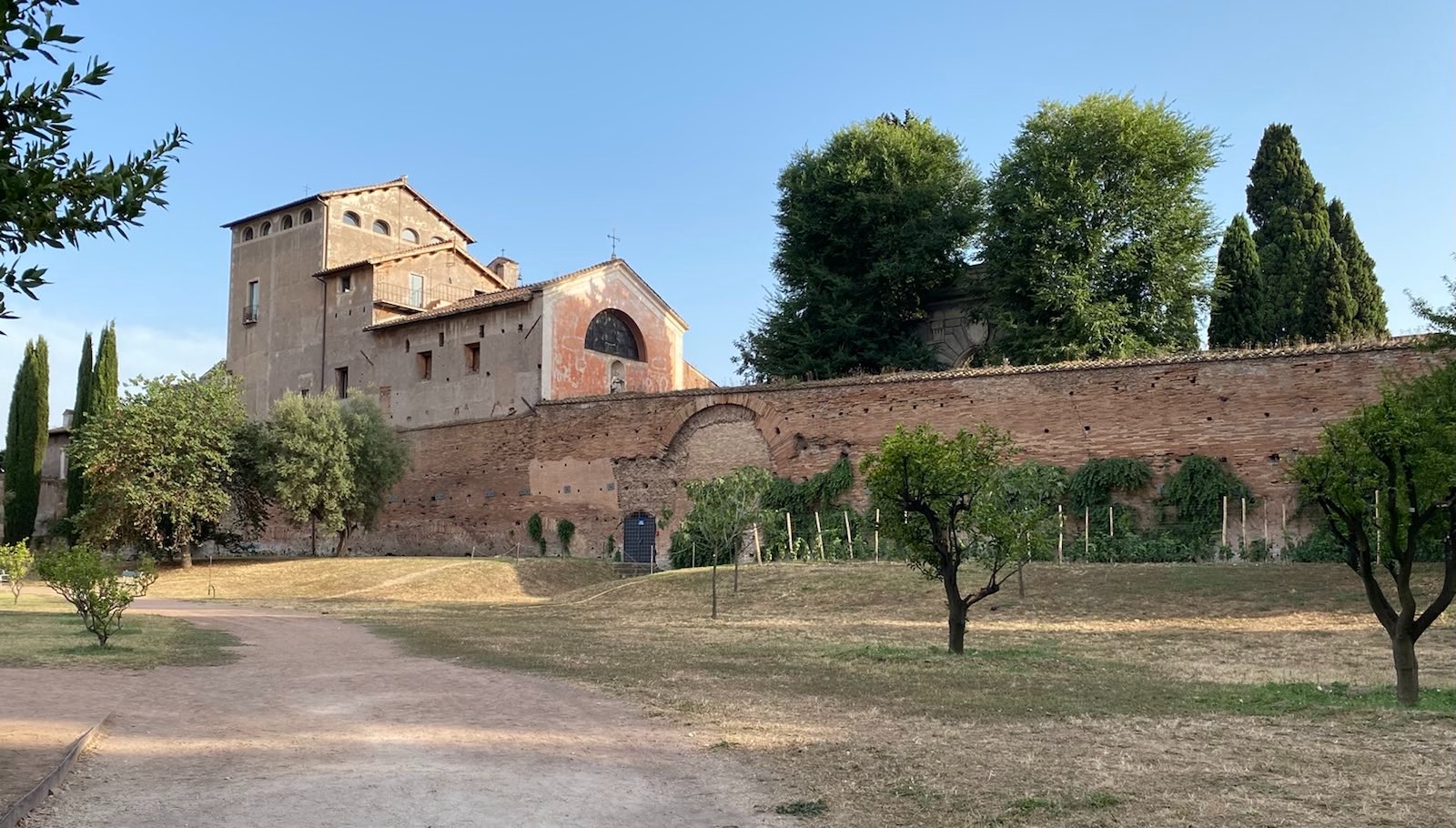
Photo by The Great Roman™
In Rome’s heart, on the Palatine Hill at the Villa Barbarini, vineyards have been planted.
Speaking of vineyards, the monks of Le Barroux support themselves with wine from the revived vinyards of the Avignon Popes.



Photo by The Great Roman™
In Rome’s heart, on the Palatine Hill at the Villa Barbarini, vineyards have been planted.
Speaking of vineyards, the monks of Le Barroux support themselves with wine from the revived vinyards of the Avignon Popes.

Comments are closed.


Coat of Arms by D Burkart
St. John Eudes
- Prosper of Aquitaine (+c.455), De gratia Dei et libero arbitrio contra Collatorem 22.61
Nota bene: I do not answer these numbers or this Skype address. You won't get me "live". I check for messages regularly.
![]()
![]()
WDTPRS


020 8133 4535


651-447-6265
“He [Satan] will set up a counter-Church which will be the ape of the Church because, he the devil, is the ape of God. It will have all the notes and characteristics of the Church, but in reverse and emptied of its divine content. It will be a mystical body of the anti-Christ that will in all externals resemble the mystical body of Christ. In desperate need for God, whom he nevertheless refuses to adore, modern man in his loneliness and frustration will hunger more and more for membership in a community that will give him enlargement of purpose, but at the cost of losing himself in some vague collectivity.”
“Who is going to save our Church? Not our bishops, not our priests and religious. It is up to you, the people. You have the minds, the eyes, and the ears to save the Church. Your mission is to see that your priests act like priests, your bishops act like bishops.”
- Fulton Sheen
Therefore, ACTIVATE YOUR CONFIRMATION and get to work!
- C.S. Lewis
PLEASE subscribe via PayPal if it is useful. Zelle and Wise are better, but PayPal is convenient.
A monthly subscription donation means I have steady income I can plan on. I put you my list of benefactors for whom I pray and for whom I often say Holy Mass.
In view of the rapidly changing challenges I now face, I would like to add more $10/month subscribers. Will you please help?
For a one time donation...



"But if, in any layman who is indeed imbued with literature, ignorance of the Latin language, which we can truly call the 'catholic' language, indicates a certain sluggishness in his love toward the Church, how much more fitting it is that each and every cleric should be adequately practiced and skilled in that language!" - Pius XI
"Let us realize that this remark of Cicero (Brutus 37, 140) can be in a certain way referred to [young lay people]: 'It is not so much a matter of distinction to know Latin as it is disgraceful not to know it.'" - St. John Paul II
Grant unto thy Church, we beseech Thee, O merciful God, that She, being gathered together by the Holy Ghost, may be in no wise troubled by attack from her foes. O God, who by sin art offended and by penance pacified, mercifully regard the prayers of Thy people making supplication unto Thee,and turn away the scourges of Thine anger which we deserve for our sins. Almighty and Everlasting God, in whose Hand are the power and the government of every realm: look down upon and help the Christian people that the heathen nations who trust in the fierceness of their own might may be crushed by the power of thine Arm. Through our Lord Jesus Christ, Thy Son, who liveth and reigneth with Thee in the unity of the Holy Ghost, God, world without end. R. Amen.
If you travel internationally, this is a super useful gizmo for your mobile internet data. I use one. If you get one through my link, I get data rewards.






Visits tracked by Statcounter
since Sat., 25 Nov. 2006:
I look forward to these daily Rome shots. This one is neat! Thanks for sharing, Father Z.
qual ti negasse il vin de la sua fiala
per la tua sete, in libertà non fora
se non com’ acqua ch’al mar non si cala.
Tu vuo’ saper di quai piante s’infiora
questa ghirlanda che ‘ntorno vagheggia
la bella donna ch’al ciel t’avvalora.”
The Renaissance was the work of individuals, and in a sense it was about individualism. And the first and greatest of these individuals was Dante Alighieri (1265-1321). Dante was a Florentine, appropriately because Florence played a more important role in the Renaissance than any other city. He also embodies the central paradox of the Renaissance: while it was about the recovery and understanding of ancient Greek and Latin texts and the writing of elegant Latin, it was also about the maturing, ordering and use of vernacular languages, especially Italian.
– Paul Johnson, The Renaissance
Dante was the last guy who knew everything.
Possible exception, Eramsmus.
Fr. Z: I agree, and suggest that one could read the Divine Comedy more profitably than In Praise of Folly. Still, Erasmus and Thomas More were friends.
Paul Johnson on Dante’s education:
There were three key elements in Dante’s education. One was the Florentine Dominicans…Dante was able to absorb the whole Aristotelian philosophy, as received and Christianized by Aquinas. Thomist Aristotelianism gives a structure to his oeuvre, bringing to it internal consistency and intellectual rigor.
Second, Dante had as mentor the classical scholar Brunetto Latini…It was thanks to Brunetto Latini that Dante was able to understand the importance of rhetoric…Through Latini, too, Dante got to know at least part of the works of Cicero and Seneca. Virgil, and especially his Aeneid, the epic successor to Homer’s Iliad and Odyssey…had always found Christian defenders.
The third element in Dante’s education was the influence and encouragement of his friend and near contemporary Guido Cavalcanti, another classical scholar but a man whose passion was the promotion of Italian…In due course, Dante provided in his Convivio, written in Italian, and in his De vulgari eloquentia, written in Latin, the first great Renaissance defense of the vernacular as a suitable language for works of beauty and weight.